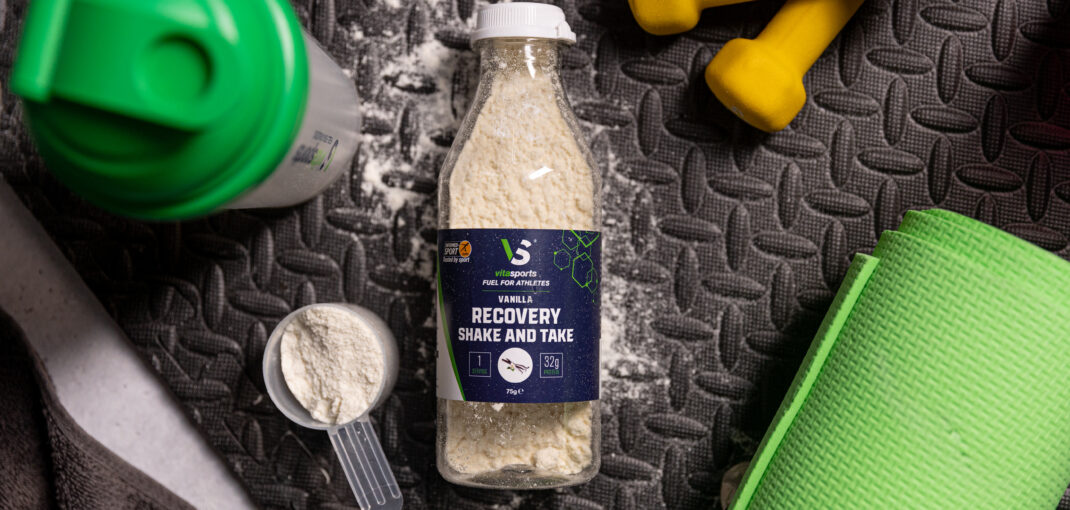The importance of protein

The importance of protein
What is protein?
The body’s cells and tissues, are made of protein. Amino acids are the building blocks of proteins, which are the primary constituents of our muscles, bones, skin, tissues, and organs. When we eat protein, our body breaks it into individual amino acids during digestion are then used to build new proteins in various parts of the body (where it is needed).
What are the protein needs of athletes?
The amount of protein that an athlete needs depends on various factors, such as their age, gender, body weight, and activity level. Athletes should consume 1.2 – 2.0 grams of protein per kilogram of body weight (g/kg/bw) per day to optimally recover from training. These recommendations are based on the assumption that the athlete is consuming an adequate amount of energy from other sources such as; carbohydrates and fats.
Athletes in endurance sports (runners, cyclists, and long distance swimmers) are advised to ingest between lower ranges of protein between 1.2 – 1.4 g/kg/bw of body weight per day (84 to 98 g for a 70 kg athlete), but intakes for strength and power athletes are recommended to consume 1.7-2g/kg/bw.
If an athlete is trying to reduce fat mass, it is recommended that they consume higher intakes to preserve muscle mass and still recover from training. Failing to meet higher protein intakes during a calorie deficit will result in reductions in muscle mass and will promote injury. Protein recommendations during a calorie deficit are 2.3-3g/kg/bw.
Protein plays an important role in the recovery of an injury because it is required for the repair and rebuilding process of the damaged tissue. To facilitate recovery athletes should increase their protein intake to 2.3 – 3.0g/kg/bw. Injuries that require high levels of protein could include any structural damage within connective tissue, e.g example tendons and ligaments tears, bone damage e.g stress fracture or any muscular damage, e.g muscle tears.
For younger athletes who are going through periods of growth and development, sufficient protein intakes are needed to support the synthesis of new cells and growth of new tissue. Appropriate protein intakes are important for the maintenance of muscle mass and strength, which can be compromised during periods of growth and development. Additionally, protein is important for the synthesis of hormones and enzymes, which play a key role in the body’s metabolism and overall health to a child.
Listed above were recommendations for protein per day, but its also essential to consume enough protein per meal. The recommendations of protein per meal is 0.3-0.4g/kg/bw (23-30g of protein per meal for a 75kg athlete).
When should you distribute protein?
It is recommended that athletes consume protein throughout the day, rather than all at once. This can help ensure that the body has a steady supply of amino acids to maximise growth and recovery of cell tissue. In terms of timing, athletes should consume protein every 2-4
hours across the day. This would typically result in consuming a protein source x5 a day. This will maximally stimulate growth and repair from training.
Where should you get protein from?
It is important for athletes to consume high-quality sources of protein, such as meat, poultry, fish, eggs and dairy products. Protein supplements, such as protein powders and bars, can also be useful for athletes who have difficulty meeting their protein needs through food alone. Amino acids are the building blocks and make up of proteins, and they are classified as either essential or nonessential. Essential amino acids cannot be synthesized by the body nonessential amino acids can be synthesized by the body. A “complete protein” is a source containing all essential amino acids. A “complete protein” is required to maximally rebuild tissue and recover from exercise. Animal-based foods, such as meat, poultry, fish, dairy products and eggs, are complete proteins. In contrast, plant-based proteins are often incomplete proteins, meaning that they do not contain all nine essential amino acids. It is still possible to obtain all the essential amino acids from a plant-based source by combining multiple plant based proteins together to make it “complete”. Some good combinations of incomplete proteins to make a complete protein would be whole grains with beans (beans and rice). It’s essential that athletes focus on complete proteins to optimise recovery and growth of tissue.
Whey protein and casein protein are two different types of protein. One of the main differences between whey and casein protein is their digestibility. Whey protein is a fast-digesting protein that is quickly absorbed by the body. It is often taken immediately after exercise to help repair and rebuild muscle tissue. In contrast, casein protein is a slow-digesting protein that is digested slower by the body. Casein protein before bedtime is advised to ensure a sustained recovery during sleeping hours. Some good sources of casein protein are
- Milk
- Greek yoghurt
- White cheese e.g cottage cheese / quark
- Casein protein powders
Overall, both whey protein and casein protein can be useful for athletes and others who are looking to increase their protein intake.
Feeding Diet for a 80kg athlete (approx. 135 grams of protein):
- 7:30am Breakfast: 3 scrambled eggs with vegetables and served with 2 slices of toast +1 cup of milk
- 12:30 Lunch: 1.5 grilled medium chicken breasts with roasted vegetables and quinoa + Greek yogurt with berries and nuts
- 3:30pm Snack: 1 can tuna salad with mixed greens, cherry tomatoes, and avocado, served with 4 whole grain crackers
- 18:30pm Dinner: 2 medium grilled salmon fillets with ½ sweet potato and steamed broccoli
- 22:00pm Pre-Bed: protein shake made with 2 scoops of casein powder and 1 cup of milk